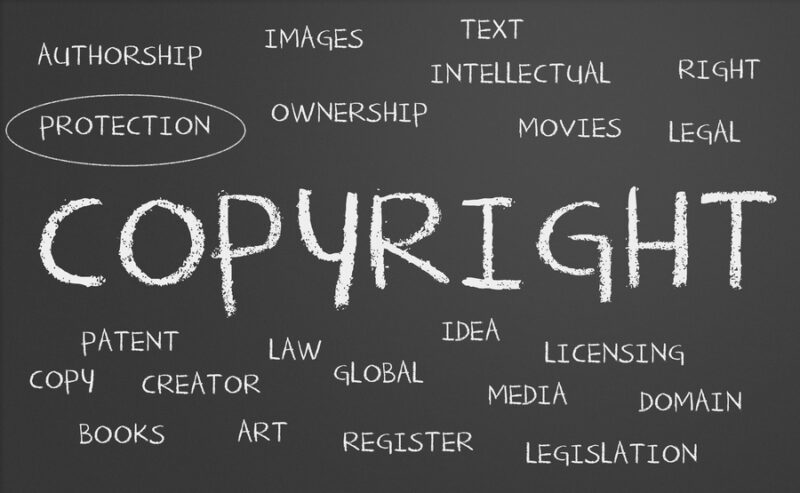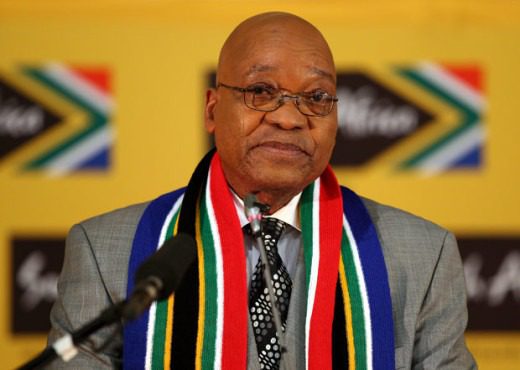Legal Issues
Nigerian Copyright Act And Piracy: A Case Study Using The International Standard -By Oyetola Muyiwa Atoyebi & Theodora Nnodim
The Nigerian Copyright Act is the principal legislation governing piracy and copyright infringement. To ensure the enforcement of the provisions of the Act, the Nigerian Copyright Commission was established to be responsible for all matters affecting copyright in Nigeria as provided for in the Act.

1.0: Introduction
Copyright Piracy is a global problem, although more prevalent in developing countries like Nigeria. Nigeria’s status as a favourable destination for foreign direct investment and a place where local creative talent can flourish is in jeopardy, due to the activities of individuals who unjustifiably infringe on the copyrighted works of others.[i]Have the provisions of the Copyright Act been properly enforced? What roles has the Copyright Act played in eliminating the cankerworm known as piracy from Nigeria, particularly in the entertainment industry? What better methods should be employed to take what is good and make it better? These and more are explored in this article.
2.0: Definition of Key term(s):
2.1: Piracy
The Nigerian Copyright Act does not define the term ‘Piracy’. Nonetheless, Piracy is simply the unauthorised and illegal production or distribution of materials protected by copyright, patent, or trademark law.[ii]Piracy occurs when the original work of an author is violated by the illegal reproduction of the creator’s work usually on a commercial scale. Section 1 of the Copyright Act lists out works that are eligible for copyright as follows:
- Literary works.
- Musical works.
- Artistic works.
- Cinematographic films.
- Sound recordings.
- Broadcasts.
Copyright is infringed by any person who without the license or authorization of the owner of the copyright, does any of the acts listed under sections15(a) to (g) of the Copyrights Act.
2.2: Forms of Piracy
Piracy can take many forms such as Book Piracy, Music Piracy, Cinematographic film piracy, Broadcast Piracy and Internet Piracy.
2.3: Causes of Piracy.
- The expensive nature of original products has made the masses unable to afford the original products due to poverty.
- Inability to access genuine products.
- Profit/greed: The desire to reap where one did not sow has overtaken these persons who participate in piracy. Instead of doing the work, they would prefer to ride a shortcut by reeling in the benefits of others who have done the work.
- The rapid emergence of new digital information technology has made it easier to pirate products.
2.4: Limitations/Exemptions to Piracy.
Notwithstanding the above, the Copyright Act under the 2nd to 4th Schedules[iii] provides for exceptions and limitations. The first of which is the fair dealing exemption which is closely followed by the educational use exemption also known as the use for academic purposes. Another exception is for government, public libraries and institutions for the disabled. This means that copyright will not be deemed infringed if the publication or reproduction of the author’s work was made under these headings.
3.0: The Role of the Nigerian Copyright Act in Curbing Piracy in Nigeria.
The Nigerian Copyright Act is the principal legislation governing piracy and copyright infringement. To ensure the enforcement of the provisions of the Act, the Nigerian Copyright Commission was established to be responsible for all matters affecting copyright in Nigeria as provided for in the Act;[iv]
The Act further goes ahead to give the commission the authority to appoint copyright inspectors. These copyright inspectors shall have the right to enter and inspect any building, and to make arrests on anyone he reasonably believes to have committed an offence under the Act;[v]These officers will be engaged in the duty of monitoring, reporting, or enforcement of the provisions of the Copyright Act.
Any person who makes or causes to be made for a sale, hire, or for trade or business any infringing copy of a work in which copyright subsists, is unless he proves to the satisfaction of the Court that he did not know, and had no reason to believe that any such copy was an infringing copy of any such, guilty of an offence under section 20 of the Copyright Act. Also, he is liable on conviction to a fine of N100 for every copy dealt with in contravention of the section, or to a term of imprisonment not exceeding two years, or in the case of an individual, to both such fine and imprisonment.[vi]
In Nigerian Copyright Commission v. Oba Okechukwu[vii] the accused was charged for being in possession (other than for private use) and for the sale of 126 infringing copies of cinematographic films and musical works in DVDs, CDs and CD formats in breach of section 20(2)(a) and (c) of the Nigerian Copyright Act, Cap C28 Laws of the Federation of Nigeria 2004. The Federal High Court Abuja per Abdu-Kafarati J, sentenced the accused to three (3) months imprisonment, imposed a fine of N12, 600 and ordered the infringing copies to be handed over to the Nigerian Copyrights Commission for destruction in accordance with Section 20(5) of the Copyright Act.
In Nigerian Copyright Commission v. CVL Technologies Ltd, the accused, a registered optical disc plant company, were found guilty on a three-count charge of making for sale 350 infringing copies of various sound recordings and cinematographic films, as well as being in possession of plates, master tapes, stampers, machine, equipment or contrivances for the purpose of piracy. The accused pleaded guilty to all charges. The court imposed a fine of N114, 000. In Nigerian Copyright Commission v. Emordi Henry Chukwuma,[viii] the accused was sentenced upon conviction to pay a fine of N10,000.
The commission is also empowered to make regulations guiding against the infringement of copyright. The Regulations made include the following: Copyright (Video Rental) Regulations, 1999,[ix]Copyright (Security Devices)Regulations 1999,[x]Copyright (Optical Disc Plates) Regulations, 2006, Copyright (Collective Management Organizations)Regulations, 2007.
4.0:What can NigeriaLearn from International Bodies in the Fight Against Piracy?
In the case of sentencing and criminalizing the act of piracy, compared to Nigeria, other climes have enacted harsher laws which have gone a long way to instill fear and prevent the act of piracy. For instance, in the United States, particularly in the state of Michigan, the offence of taping movies in the theatre carries the following penalties; a fine of $10,000 and one year in jail for the first offence, a $20,000 fine and two years in jail for the second offence and $40,000 fine and four years in jail for the third offence. In the United Kingdom, in 2017, the UK government passed the Digital Economy Act, which introduced tougher sentences for online copyright infringement. The maximum penalty for illegally streaming copyrighted content is 10 years in prison, an increase from the previous maximum of two years.[xi]
In the case of Nigerian Copyright Commission v. Joseph Daomi[xii], and Nigerian Copyright Commission v. Stanley Nwankwo[xiii], the accused were both convicted for the illegal distribution of a broadcast signal and the possession of pirated copies of local and foreign movies and music on DVD and CD formats with the intention of selling them. The Court gave an option of either 14 days imprisonment or a N20,000 fine in the former, whilst for the latter, the accused (Nwankwo) was sentenced to six months imprisonment or a N50,400 fine. In both cases, the convicts offered to pay the fine. This is a meagre sum compared to the amount garnered from this illegal reproduction. These persons will continue in this act so long as the punishments proffered under the act remain nothing to write about.
Secondly, the poor enforcement of existing anti-piracy laws and the low operational capacity of the Nigerian Copyright Commission as the agency responsible for the administration and control of copyrights are not helpful.[xiv]Compared to the United States Copyright Office which has been at the forefront of America’s copyright battle. This office produces circulars, FAQs and videos that explain copyright to the layman to discourage patronage of such pirated products. If the Commission can adopt this strategy of educating the masses because more than 50% of the population do not understand the implication of piracy and the redundancy effect it has on original creators. This can be achieved through using social media awareness programs. Many Nigerians can be found on various social media platforms; therefore, social media public awareness is a good place to start.
5.0: Recommendations
The need for the Commission to be strengthened;
1. The Copyright Act needs to be amended to reflect more effective measures geared towards the prevention of piracy.
2. Studies such as this paper should be conducted with the view of examining the impact or extent of piracy in Nigeria, particularly in the entertainment industry. This will help to give a size to the problems surrounding piracy in Nigeria and know the extent we need to aid the commission in the fight against piracy.
3. There has to be renewed cooperation between the key stakeholders in the entertainment industry and the government. This is also key in identifying the extent of the task of exterminating this cankerworm from the industry.
4. Finally, the importance of social media awareness must be re-iterated. The citizens of Nigeria need proper enlightenment on how copyright affects them.
6.0: Conclusion
Drawing from all highlighted, there is still room for Nigeria to improve on its laws and seek to enforce them as this would increase innovation, invention, intellectual protection and also profitability thereby improving the Nation’s economy.
AUTHOR: Oyetola Muyiwa Atoyebi, SAN, FCIArb. (UK).
Mr. Oyetola Muyiwa Atoyebi, SAN is the Managing Partner of O. M. Atoyebi, S.A.N & Partners (OMAPLEX Law Firm) where he also doubles as the Team Lead of the Firm’s Emerging Areas of Law Practice.
Mr. Atoyebi has expertise in and a vast knowledge of Intellectual Property Law and this has seen him advise and represent his vast clientele in a myriad of high level transactions. He holds the honour of being the youngest lawyer in Nigeria’s history to be conferred with the rank of a Senior Advocate of Nigeria.
He can be reached at atoyebi@omaplex.com.ng
CONTRIBUTOR: Theodora Nnodim.
Theodora is a member of the Dispute Resolution Team at OMAPLEX Law Firm. She also holds commendable legal expertise in Intellectual Property Law.
She can be reached at theodora.nnodim@omaplex.com.ng.
[i]Waziri, K. M. (2011). Intellectual Property Piracy and Counterfeiting in Nigeria: The Impending Economic and Social Conundrum. Journal of politics and law, 4, 196-202.
[ii]Garner, B. A.(2004), Blacks Law Dictionary (8th Ed.). Thompson West Publishing Co.
[iii]Copyright Act, CapC28, Law of the Federation, 2004.
[iv]Section 34(3), Copyright Act, Cap C28, Laws of the Federal Republic of Nigeria, 2004.
[v]ibid Section 38(1) – (2) (a) to (g),
[vi] Section 20, Copyright Act, Cap C28, Law of the Federal Republic of Nigeria, 2004.
[vii] (2014) 2(8) NLIPW Copyright Law Digest
[viii] 56 NIPJD[FHC.2013] ABJ/CR/90.
[ix]Government Notice No.144 Gazette No.63 vol. 86 of 10th September, 1979.
[x]Government Notice 145, Gazette No.63, vol. 86 of 10th September, 1999
[xi]Itanyi, Nkem (2022). The Concept of Piracy in the Film Industry in Nigeria: Taking a cue from other Countries. Research Gate, Volume 13
[xii]55 NIPJD [FHC, 2012] MKD/CR/38.
[xiii] 55 NIPJD [FHC, 2012] ABJ/CR/14/2011.
[xiv]A. A. Ridwan, G. Akashoro, M. Ajaga, (2013). An Empirical Study of the factors responsible for the high prevalence of video film piracy in Nigeria.European Scientific Journal, vol. 9 No.8 pg. 13.




















